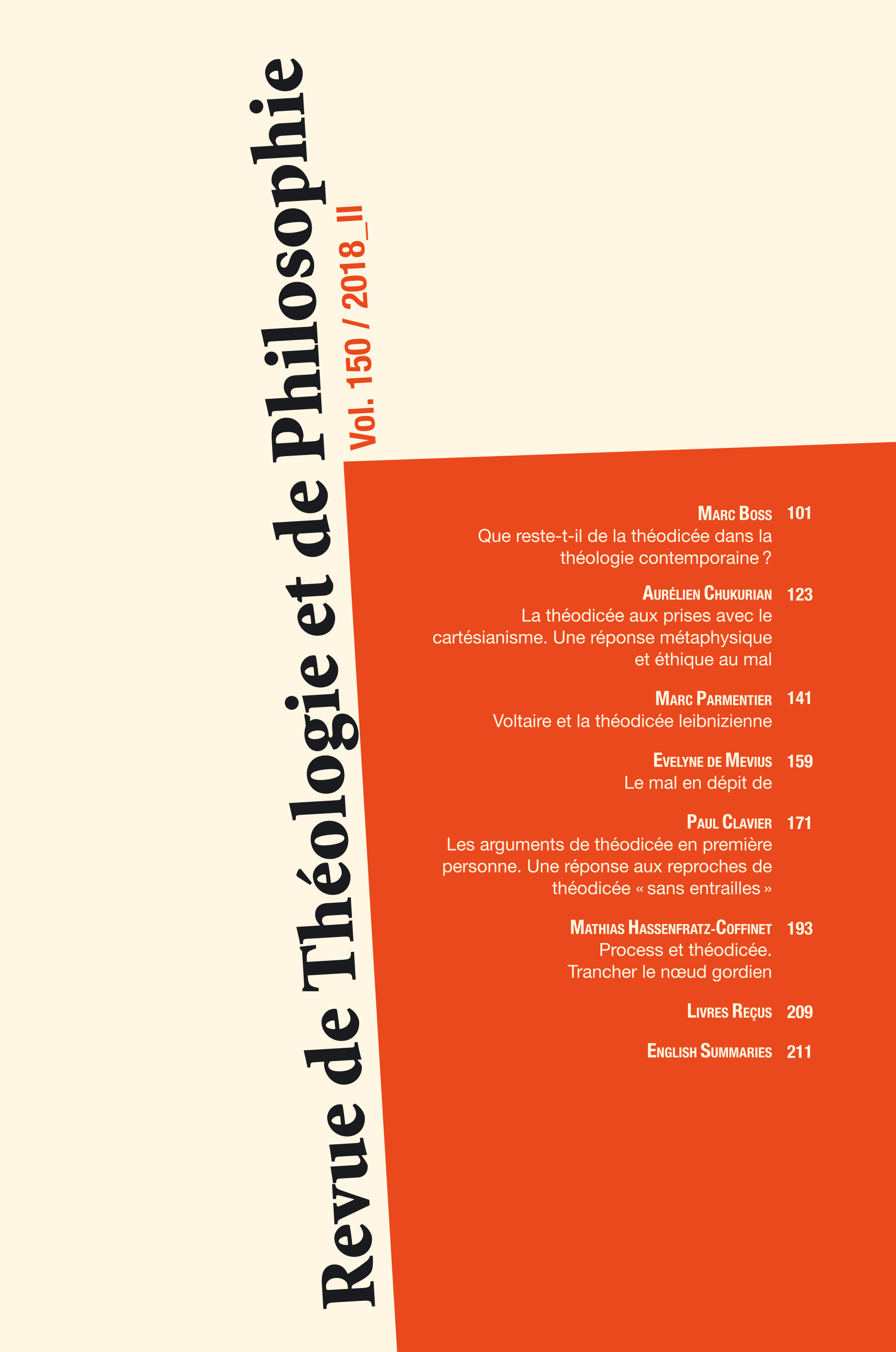Voltaire et la théodicée leibnizienne
Résumé
L’objectif de cet article est de tenter d’élucider le motif des contresens que commet délibérément Voltaire au sujet de la théodicée leibnizienne. Voltaire en effet ne peut pas être suspecté de ne pas connaître très bien la philosophie de Leibniz ni d’être, a priori, réfractaire à l’optimisme. L’article met en regard, d’un côté, les distorsions qu’il fait subir aux concepts leibniziens dans Candide (transformation de la nécessité morale en fatalisme ; confusion entre le meilleur et le bon, alors que Leibniz ne minimise nullement la réalité du mal ; application aveugle de maximes générales à l’échelle locale) et, de l’autre, les développements qu’il consacre à ces questions dans ses Éléments de la philosophie de Newton, ainsi que certains épisodes à tonalité leibnizienne intervenant dans d’autres contes, en particulier Memnon et Zadig. Cette confrontation permet de formuler l’hypothèse selon laquelle Candide constitue en réalité un dispositif leibnizien destiné à faire subir aux thèses du philosophe de Hanovre une épreuve expérimentale.
Comment citer
Formats de citations
Numéro
